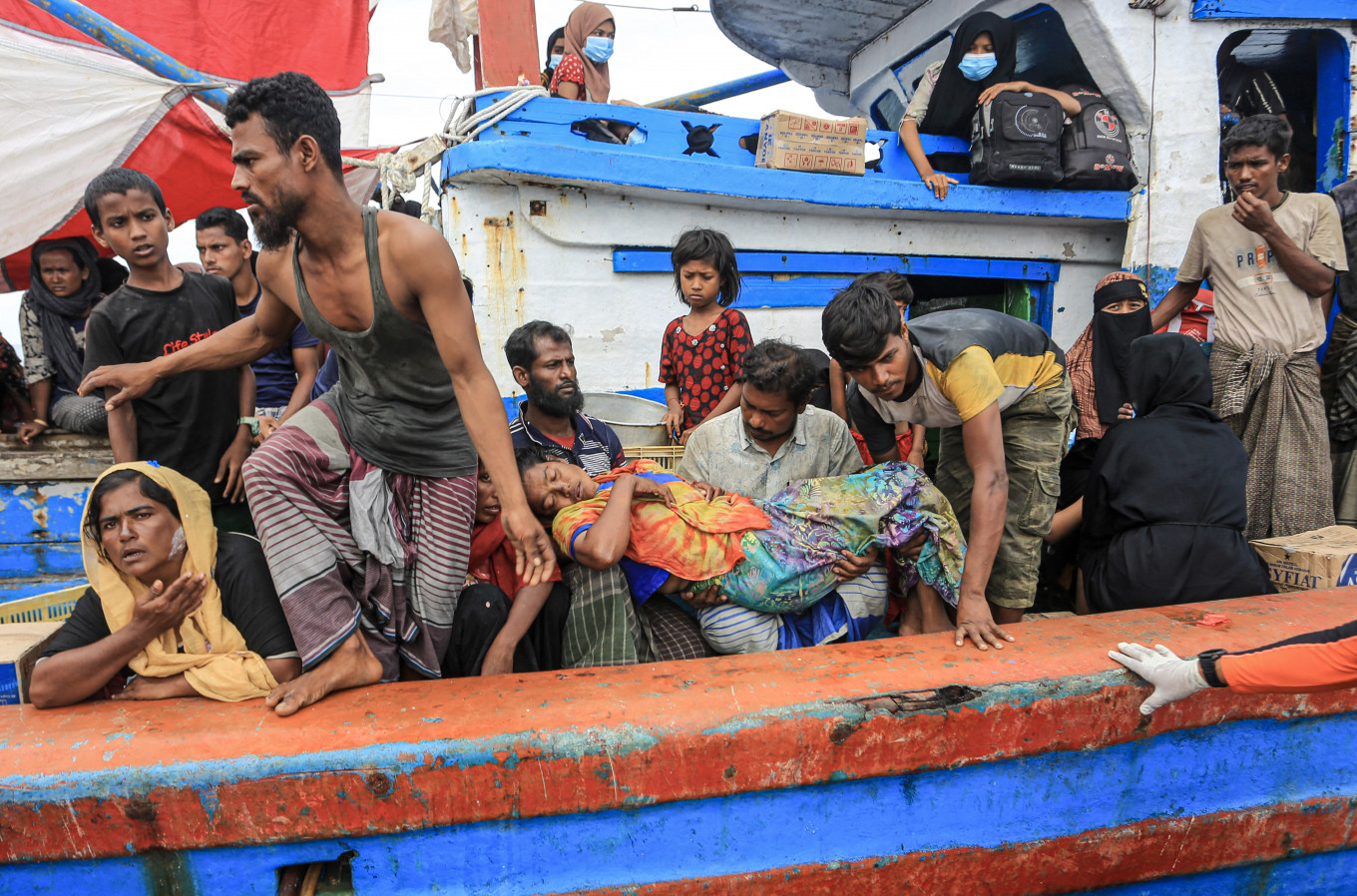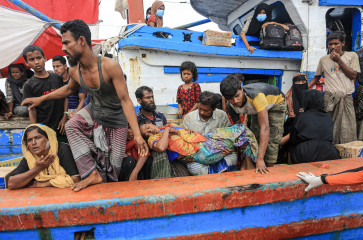Popular Reads
Top Results
Can't find what you're looking for?
View all search resultsPopular Reads
Top Results
Can't find what you're looking for?
View all search resultsASEAN Human Rights Declaration: Now and the road ahead
The ASEAN Human Rights Declaration, a nonbinding instrument that was adopted in 2012, must be transformed into an actionable framework to meet today’s needs, and one pathway toward this is to empower the AICHR so it can protect human rights across the region.
Change text size
Gift Premium Articles
to Anyone
 A Rohingya immigrants try to evacuate their sick colleagues from a boat that experienced an engine failure in the waters of Padang Bakau Village, Labuhan Haji District, South Aceh, Aceh, on Sunday, October 20, 2024. A total of 151 Rohingya immigrants consisting of 59 children, 79 women and 13 adult men were on board the ship that was stranded in the waters of South Aceh, Aceh
(Antara Foto/Syifa Yulinnas)
A Rohingya immigrants try to evacuate their sick colleagues from a boat that experienced an engine failure in the waters of Padang Bakau Village, Labuhan Haji District, South Aceh, Aceh, on Sunday, October 20, 2024. A total of 151 Rohingya immigrants consisting of 59 children, 79 women and 13 adult men were on board the ship that was stranded in the waters of South Aceh, Aceh
(Antara Foto/Syifa Yulinnas)
E
leven years ago today, the ASEAN Human Rights Declaration (AHRD) was adopted alongside the Phnom Penh Statement, marking a milestone in the region’s quest for a human rights framework.
However, this anniversary highlights the AHRD’s dual legacy: a symbol of progress in regional cooperation and a stark reminder of the ongoing challenges in aligning ASEAN’s diverse political systems and cultural contexts under a unified human rights banner.
The adoption of the AHRD during the 21st ASEAN Summit in Phnom Penh in 2012 was far from smooth. On the eve of its signing on Nov. 17, doubts arose as Indonesia and the Philippines expressed their concerns over provisions that failed to meet the standards of the Universal Declaration of Human Rights (UDHR).
Civil society groups had already criticized the draft for its lack of universality, its vague qualifiers like “in accordance with the law”, and provisions that seemed to allow states to limit fundamental freedoms. These shortcomings fueled fears that the AHRD might serve more as a shield for state control than as a genuine human rights instrument.
Indonesia’s proposal for the Phnom Penh Statement as an accompanying document to the AHRD offered a crucial compromise. The statement reaffirmed that the AHRD’s implementation must align with international human rights instruments, including the UDHR, the Vienna Declaration and ASEAN’s own rights-related declarations.
A key paragraph underscored this alignment by stating ASEAN’s commitment to implement the AHRD in accordance with its international obligations. This diplomatic breakthrough secured the declaration’s passage, but also exposed ASEAN’s cautious approach to human rights in balancing national sovereignty with regional aspirations.
Comprising 40 articles, the AHRD outlines general principles on human rights, civil and political rights, economic, social and cultural rights and the right to development, as well as protections for vulnerable groups.


















